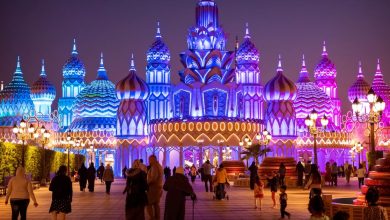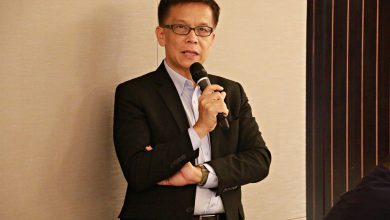PHOTO: Sultan bin Saeed Al Mansouri, Minister of Economy and Chairman of the DIEDC
The Global Islamic Economy Report for 2018-2019 has ranked the UAE in first place on five Islamic economic sectors. The report, entitled “An Inclusive Ethical Economy” commissioned by the Dubai Islamic Economy Development Centre (DIEDC) is the sixth report in its series.
In a report from WAM, the UAE ranked first on five sectors which includes halal food, halal travel, modest fashion, halal media and recreation, and halal pharmaceuticals and cosmetics, while Malaysia took the top spot for the Global Islamic Economy Indicator.
The report affirms the UAE’s continuous development in the economic sector, from gaining three top spots last 2017-2018, to five in this year’s report.
The findings were unveiled during a seminar, which was held at the DIFC Conference Centre on the second day of the Islamic Economy Week.
A panel discussion followed the launch, moderated by Mustafa Adil, Head of Islamic Finance at Thomson Reuters, which included leading panellists, such as Shamzani Hussain, Managing Director and Head of Islamic Banking at First Abu Dhabi Bank, Ahmed Daoud, Chief Innovation Officer at Zileej, and Rafiuddin Shikoh, CEO of DinarStandard.
Speaking about the results of the report, Sultan bin Saeed Al Mansouri, Minister of Economy and Chairman of the DIEDC, said, “This year, the UAE has boosted its Global Islamic Economy Indicator score and attained the top places in two additional sectors. The rise of the country’s standing highlights the commitment of the DIEDC’s partners to implement the centre’s initiatives, their significant contributions to the development of the Islamic economy in Dubai, as well as the success of the UAE’s sustainable development drive, as part of its post-oil economic vision.”
Speaking about the purpose of the report, Abdulla Mohammed Al Awar, CEO of the DIEDC, said, “Every annual report offers fresh facts and statistics that provide us with new insights and perspectives to better understand and more accurately anticipate consumer behaviour among Muslims across key markets.”
Addressing the 2018-2019 results, he added, “This year, we have witnessed a surge in demand for products that not only conform to sharia-compliant financing and stringent environmental sustainability, and health and safety standards, but are also manufactured using halal-certified ingredients. The consistency that is integral to the supply chain explains the rising attractiveness of, and demand for, Islamic economy products among international communities.”
Al Awar reiterated the DIEDC’s commitment to boosting the UAE’s Global Islamic Economy Indicator score through joint efforts with its strategic partners, to enhance the Islamic finance and banking sector, the only sector in which the country placed second.
The report estimates that Muslims spent US$2.1 trillion in the food, beverage and lifestyle sectors in 2017, while forecasting the spending of $3 trillion by 2023. By category, the food and beverage sector tops the list of spending by Muslim at $1.3 trillion, followed by fashion at $270 billion, media and recreation at $209 billion, travel at $177 billion, pharmaceuticals at $87 billion, and cosmetics at $61 billion.
The Global Islamic Economy Report for 2018-2019 was produced by Thomson Reuters, in collaboration with DinarStandard and the Dubai International Financial Centre, DIFC.



